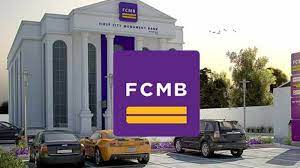FCMB Group Plc has opened a ₦160 billion public share sale as part of a sweeping plan to strengthen its banking subsidiary and comply with the Central Bank of Nigeria’s new ₦500 billion minimum capital requirement for international banks.
The offer, which runs until November 6, 2025, will see the company issue 16 billion ordinary shares at ₦10 each. Funds raised will be channelled into recapitalising First City Monument Bank Limited, enabling the lender to retain its international banking licence under the CBN’s recapitalisation directive.
The latest share sale follows a successful ₦147.5 billion offering in 2024, the group’s first in 16 years, which was oversubscribed by 33 percent. That issuance attracted 42,800 investors, with 92 percent subscribing via digital platforms. Market analysts believe this strong investor appetite will continue into the second phase of FCMB’s three-stage recapitalisation programme.
The group’s growth trajectory underpins optimism. Between 2022 and 2025, profit before tax rose at a compound annual rate of 72 percent. Its non-bank subsidiaries, including Credit Direct Finance Company Limited, Nigeria’s largest non-bank lender and FCMB Capital Markets, also reported a 61 percent compound annual growth rate in profit. FCMB Capital Markets further consolidated its leadership by topping the FMDQ fixed income league table for bond listings and commercial papers in the first half of 2025.
Digital transformation remains a major driver of the group’s expansion. Digital revenues have grown at more than 58 percent annually since 2022, now contributing 13.9 percent of gross earnings. As of June 2025, digital lending accounted for 9 percent of the group’s loan portfolio.
Despite this growth, FCMB’s stock trades at an estimated 2025 price-to-book ratio below 0.6x, presenting what analysts describe as a rare combination of deep value and high growth potential for investors.
Upon completion of the ongoing share sale, FCMB plans to finalise the sale of minority stakes in two of its subsidiaries. Proceeds from those transactions will also be injected into the bank, pushing its core capital beyond ₦500 billion and bringing its recapitalisation process to a close.
For Nigeria’s small and medium-sized enterprises (SMEs), this capital injection is expected to translate into improved access to credit and more innovative financial products. As one of the key lenders to SMEs, FCMB’s strengthened capital base could unlock new funding streams for small businesses, support digital lending expansion, and provide more tailored financial solutions to help enterprises grow and compete in an evolving economy.










